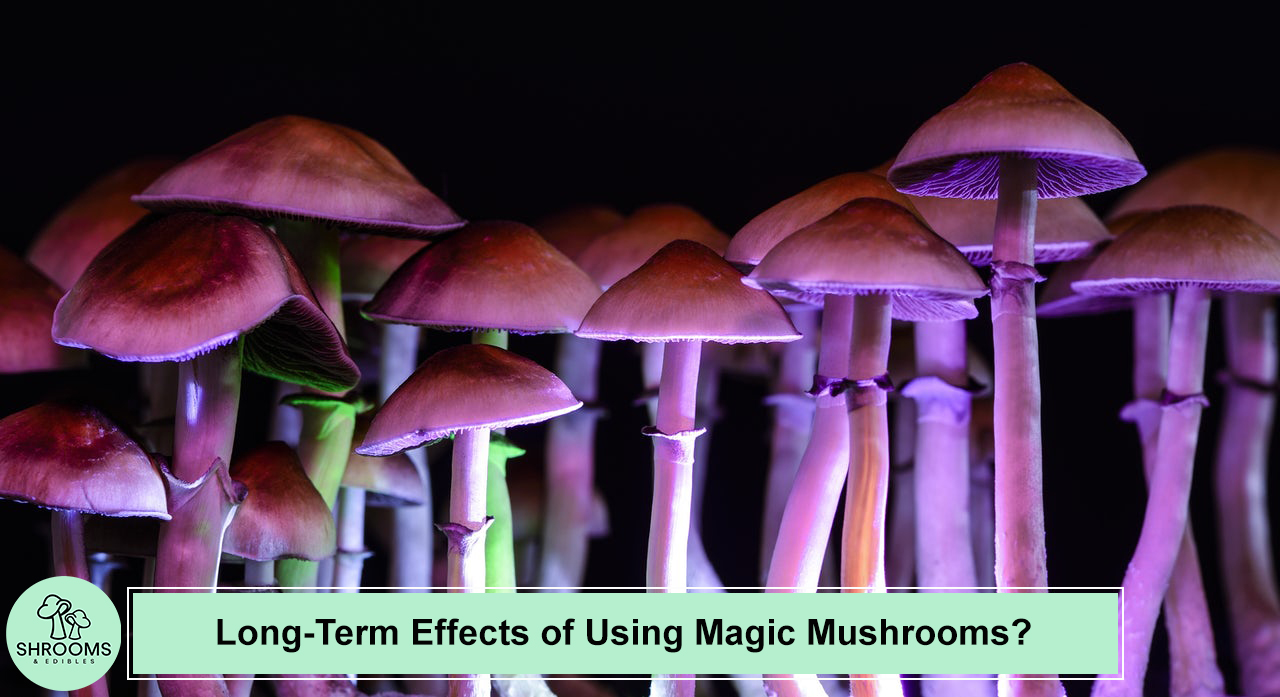
Although psilocybin, mushroom, magic mushrooms, and psychedelic mushrooms are common terms referring to the same group of hallucinogenic mushrooms, there are more than 75 known species that contain psilocybin or psilocin, the chemicals that cause hallucinations in people that use these species of shrooms. Those with hallucinogenic properties have been used for religious rituals and recreation for thousands of years, but only in recent decades, scientists began to understand the impact these substances can have on the human body.
Psychedelic fungi take effect within 20 minutes after ingestion. They can be eaten alone or consumed with other foods or can be roasted as tea and drink.
Their effects can last up to 6 hours – as long as intense changes in body and brain chemistry have detrimental effects that can lead to chronic health conditions.
Most of the physical effects of psilocybin are short-lived, but in people with pre-existing conditions, these effects can become harmful. Short-term effects include:
Changes in heartbeat and blood pressure can cause heart attacks, strokes, or pulmonary embolism in people with underlying heart conditions. If a person frequently abuses the mushrooms psilocybin or psilocin mushrooms, they can cause a heart problem that did not exist before. Other drugs, such as cocaine or amphetamines, can cause heart damage because they also increase heartbeat and blood pressure, and when abused frequently, these changes can cause heart failure.
Breathing changes from magic mushrooms can also lead to lung failure. If a person survives this, oxygen deprivation can cause permanent muscle or brain damage, requiring lifestyle changes due to a new disability.
Changes in physical coordination, judgment, understanding of reality, and muscle control can all cause a person to suffer a devastating accident. Bone fracture, brain trauma, or damage to other organs of the body can cause permanent disability.
A long-term physical effect of magic mushroom abuse is indirect tolerance. These drugs work in the brain in the same way as some other psychedelic drugs, including LSD and marijuana, so anyone abusing multiple shrooms will experience a high tolerance to related substances. It is possible that other medications may be associated with indirect tolerance, such as anesthesia, which may complicate future medical care.
There are some anecdotal reports that suggest that mushrooms are addictive or lead to physical dependence. Tolerance to some related substances may lead to future problems with substance abuse or pharmacological treatments for mental or physical disorders.
The main effects of mushrooms are psychological, often related to literally expanded consciousness. However, dramatic changes in brain state and neuronal interactions can cause long-term and even chronic effects. One of the side effects is intense panic and paranoia. People who abuse mushrooms can experience a panic attack, feel like they are being watched, or disconnect from the reality that leads them to exhibit psychotic symptoms. They can damage themselves or others with violent outbursts. They can end up in the hospital with sustained injuries from accidental injuries during a psychotic episode.
Psilocybin-induced psychosis is very similar to the symptoms of schizophrenia, and someone who is at risk for developing schizophrenia can cause this mental condition by abusing psychedelic medications. Intense changes in brain chemistry can worsen some conditions like anxiety or bipolar disorder; however, magic mushrooms have been associated, in some very small medical studies, with reduced depression. Persistent psychosis is characterized by:
Like other hallucinogens, especially LSD, chambers can cause relapses, even after one use.
Although mushrooms have been labeled as a possible cure for depression, changes in brain chemistry can cause depression or make it worse for some people. Evidence for mild to severe depression is largely anecdotal. Changes in judgment, learning, and memory can make people feel bad about themselves and their altered abilities, and this low self-esteem can be associated with increased depression.
Exposure to substances that cause high blood pressure over time will lead to constant high blood pressure, for example. However, this can take months or sometimes years to happen.
Mental state changes, however, can only occur after a case of magic mushroom abuse, or they can never occur.
In many cases, people who abuse psilocybin or psilocin usually abuse other substances too, so they need full treatment for polydrug abuse. This requires medical supervision to safely detoxify from the numerous substances followed by therapy in an evidence-based rehabilitation program.
However, even the mere abuse of magic mushrooms can indicate a problem with addiction.